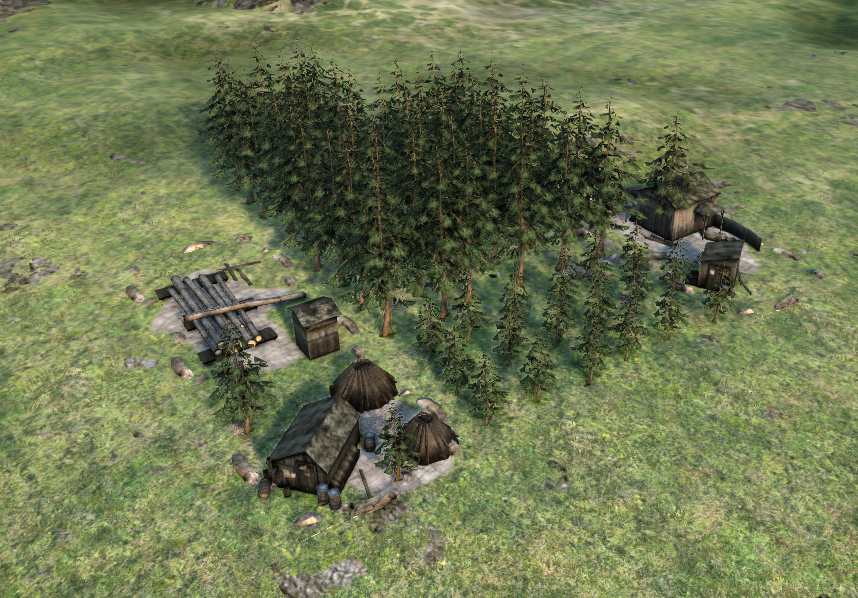Game Manual
- Basics
- Game content
- Infrastructure
- Vehicles
The Forest is the primary source of Logs ![]() , which are used by Sawmills in order to produce Timber
, which are used by Sawmills in order to produce Timber ![]() . One of the extensions to the Forest will alow it to also produce a limited amount of Coal
. One of the extensions to the Forest will alow it to also produce a limited amount of Coal ![]() . All the resources that the forest produces can be transported by rail using Log Transporter Wagons and Coal Wagons
. All the resources that the forest produces can be transported by rail using Log Transporter Wagons and Coal Wagons
Processes
The base version of the Forest generates 1 Log ![]() per Game tick. Three extensions can be added to the forest in order to increase the Log
per Game tick. Three extensions can be added to the forest in order to increase the Log ![]() production of the forest, of these extensions the "Clearing" provides the largest overall increase in production. Meanwhile the Charcoal Kiln adds Coal
production of the forest, of these extensions the "Clearing" provides the largest overall increase in production. Meanwhile the Charcoal Kiln adds Coal ![]() production to the forest, this extension is best used in conjunction with the "Steam Sawmill" extension of the Sawmill, as it supplies the building with the necessary coal to operate. With all the extensions added to the forest, it will produces roughly 3.16 Logs
production to the forest, this extension is best used in conjunction with the "Steam Sawmill" extension of the Sawmill, as it supplies the building with the necessary coal to operate. With all the extensions added to the forest, it will produces roughly 3.16 Logs ![]() and 1 Coal
and 1 Coal ![]() per Game tick.
per Game tick.
Observations:
- A single Sawmill can easily serve two or even three Forests. One Toolworks, however, can't keep up with a maximized Sawmill, so you might settle for 2 Forests --> 1 Sawmill --> 1 Toolworks. There is no easy configuration that does not waste a bit of capacity at some end (either you'll overproduce timber or you will not use the Sawmill's full capacity).
- The Steam Sawmill only needs 1 coal for about 8 logs (since it only accelerates 3 out of those 8 logs), so only one out of roughly three Forests need a Charcoal Kiln to keep the Sawmill operating at maximum capacity. Use more and you'll see your Sawmill station overflowing with coal. What you can do, however, is add coal wagons to your timber trains. This way you can transport excess coal along to the Toolworks. Just set those trains to "fully load" (otherwise they won't pick up cargo that is consumed by the station)
Challenges
During the Deforestation Challenge, one of the forests in the map will produce 4 Logs ![]() and 1 Coal
and 1 Coal ![]() per tick, the challenge requires the player to remove 1000 Logs
per tick, the challenge requires the player to remove 1000 Logs ![]() from the selected forest, within 10 years of being issued the challenge.
from the selected forest, within 10 years of being issued the challenge.




